While textile, wood and seafood exports fell sharply in the first four months of the year, essential goods, rice and Vietnamese fruits exported to other countries grew in the opposite direction.
Vietnam's export picture in the first four months of the year still faces many challenges as the export turnover of goods only reached 108.57 billion USD, down nearly 12% compared to the same period last year.
Ho Chi Minh City - the economic locomotive of the country - exported only over 12 billion USD in 4 months, down 21%, the sharpest decline in 22 years. In the export sectors, seafood, wooden products, handicrafts, textiles and garments decreased sharply at double digits. Many businesses ran out of orders, suddenly stopped exporting because their partners went bankrupt.
However, in the export group, fruits, rice, cashew nuts and essential consumer goods are bright spots as many businesses still achieved high sales and growth of 20-40% in the first 4 months of the year.
Figures from the Vietnam Fruit and Vegetable Association show that in the past 5 months, fruit and vegetable exports reached nearly 1.9 billion USD, up 29% over the same period last year. Of which, China, the US, the Netherlands, and Malaysia increased their purchases of Vietnamese fruit and vegetables. China alone purchased 805 million USD worth of Vietnamese fruit and vegetables, accounting for 59% of the market share (last year it accounted for 53%).
Regarding rice, according to statistics from the General Department of Customs, in the first 4 months of the year, rice exports reached nearly 3 million tons, equivalent to 1.56 billion USD, an increase of 43.6% in volume and 54.5% in value over the same period in 2022.
According to processed food manufacturers, the export of consumer goods such as instant noodles, pho noodles, and spices increased by 10-30%. In particular, large markets such as Korea and Japan have high demand for Vietnamese goods because of competitive prices and improved quality.
Mr. Nguyen Anh Tuan, Deputy General Director of Colusa - Miliket Food Joint Stock Company, said that in the first 5 months of the year, the company's export revenue to 30 countries and territories increased by about 30% compared to the same period last year. Sales in the company's main export markets, the US, Japan, and South Korea, increased sharply. In addition to instant noodles, Americans and EU people also prefer rice products.
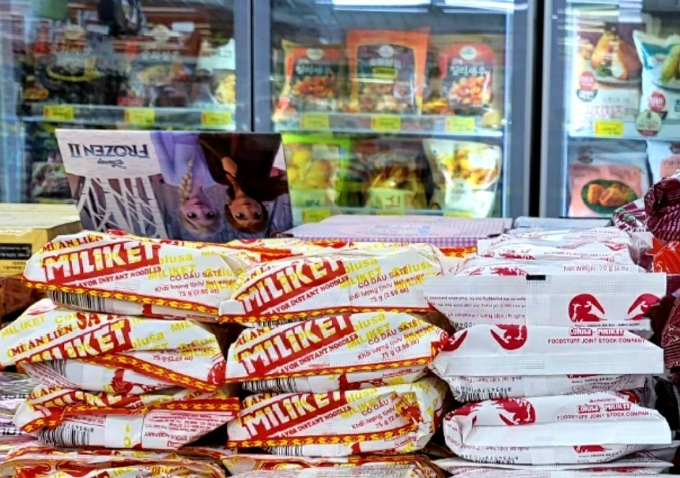
Vietnamese instant noodles on Korean supermarket shelves. Photo: Linh Dan
Similarly, Ms. Dinh Hong Van, Senior Marketing Director of Masan Consumer, informed that in the first 4 months of the year, most of the company's essential consumer goods exports were positive, of which the spice group increased the most, mainly in the Japanese market.
Regarding rice, each year, Dai Duong Xanh Import-Export Company (Lotus Rice) exports several thousand tons to the EU market, but this year it is facing the reality of "not being able to buy enough quality rice to sell". In the first 4 months of the year, according to Director Huynh Van Khoe, export orders were piling up.
"There has never been as many rice export orders as this year. Even though rice prices have increased, partners still buy in large quantities," Mr. Khoe said.
Having many advantages when China opened its doors, Mr. Nguyen Dinh Tung - General Director of Vina T&T Import Export Company said that in the first 4 months of the year, the company's fruit export revenue increased by 20% compared to the same period. With durian, this year the company has a contract to export 1,500 containers (each container weighs 15 tons) to the Chinese market.
Sharing the same view, Mr. Dang Phuc Nguyen, General Secretary of the Vietnam Fruit and Vegetable Association (Vinafruit), said that Vietnamese fruits are increasingly popular because the taste of the products is better than that of other countries.
He cited that Vietnamese durian, mango, and dragon fruit have attractive prices and are of superior quality compared to those from China and India. Vietnam has a favorable climate and better farming techniques than neighboring countries. On the other hand, Vietnamese fruits can be produced year-round, while competitors can only produce during the main season.
In the second half of the year, fruit and vegetable exports will be very promising if they grasp the requirements of the Chinese market in the direction of good manufacturing practices (GAP). The total export turnover of fruits and vegetables this year is expected to exceed 4 billion USD. "The Vietnamese fruit and vegetable ship will accelerate this year and the following years," Mr. Nguyen likened.
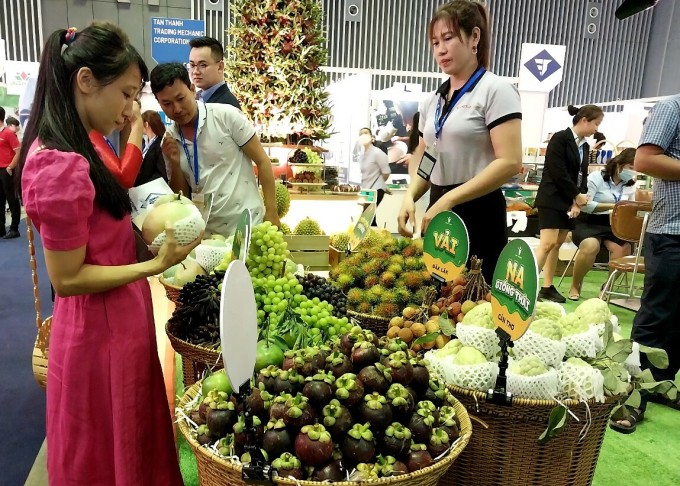
Vietnamese fruits are introduced at the 2023 Vietnam Export Fair. Photo: Thi Ha
The reason this export industry is going against the trend is partly because China is opening up, the demand for essential food in the billion-people market is increasing. The war between Russia and Ukraine has increased the need for food reserves, at the same time, drought has reduced global food supplies. Countries such as Europe, the US, and the UK have increased food imports for reserves. A report by the US Department of Agriculture (USDA) shows that global rice production in the 2022-2023 crop year is forecast to reach 503 million tons, down 2% compared to the previous year and the first annual decrease since the 2015-2016 crop year.
Besides, Vietnam's essential food products are increasingly improving in quality and becoming more competitive in price compared to competitors in the market. Many businesses have focused more on researching products that suit the tastes of international consumers.
However, businesses in this group said that the export picture in the last 6 months of the year is still not really stable. Currently, the global economy is still in recession, inflation is high, and risks are still lurking when raw material prices are escalating. Some export items still depend on the Chinese market. The group exporting essential products such as instant noodles and pho noodles is still burdened by the EU's new regulations on the banned substance ethylene oxide. The slow issuance of food safety certificates for instant noodles makes it difficult for businesses to export to demanding markets.
To speed up, businesses have asked the Ministry of Industry and Trade to step up trade promotion activities in new markets. They also asked the ministry to coordinate with the Ministry of Health and the Ministry of Science and Technology to speed up the inspection of goods and issue food safety certificates to exporting businesses. For fruits and vegetables, businesses want to be encouraged to provide codes and control growing areas and packaging facilities more closely to avoid code impersonation.
Thi Ha
Source link




![[Photo] In May, lotus flowers bloom in President Ho Chi Minh's hometown](https://vphoto.vietnam.vn/thumb/1200x675/vietnam/resource/IMAGE/2025/5/15/aed19c8fa5ef410ea0099d9ecf34d2ad)

![[Photo] Prime Minister Pham Minh Chinh receives Country Director of the World Bank Regional Office for Vietnam, Laos, Cambodia](https://vphoto.vietnam.vn/thumb/1200x675/vietnam/resource/IMAGE/2025/5/15/2c7898852fa74a67a7d39e601e287d48)
![[Photo] President Luong Cuong attends the National Ceremony to honor Uncle Ho's Good Children](https://vphoto.vietnam.vn/thumb/1200x675/vietnam/resource/IMAGE/2025/5/15/9defa1e6e3e743f59a79f667b0b6b3db)


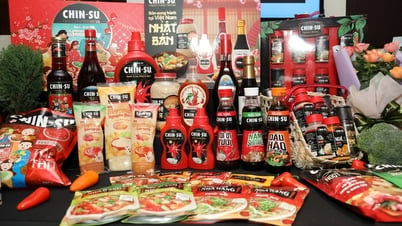

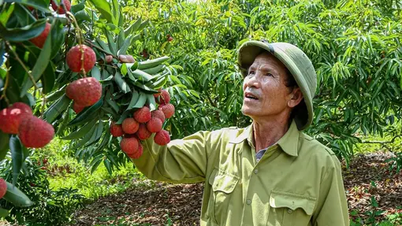



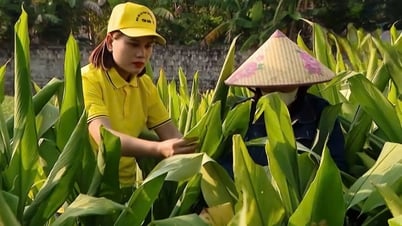























![[Photo] Close-up of An Phu underpass, which will open to traffic in June](https://vphoto.vietnam.vn/thumb/1200x675/vietnam/resource/IMAGE/2025/5/15/5adb08323ea7482fb64fa1bf55fed112)




















































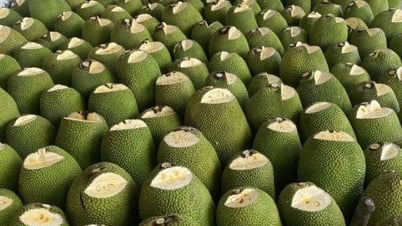













Comment (0)